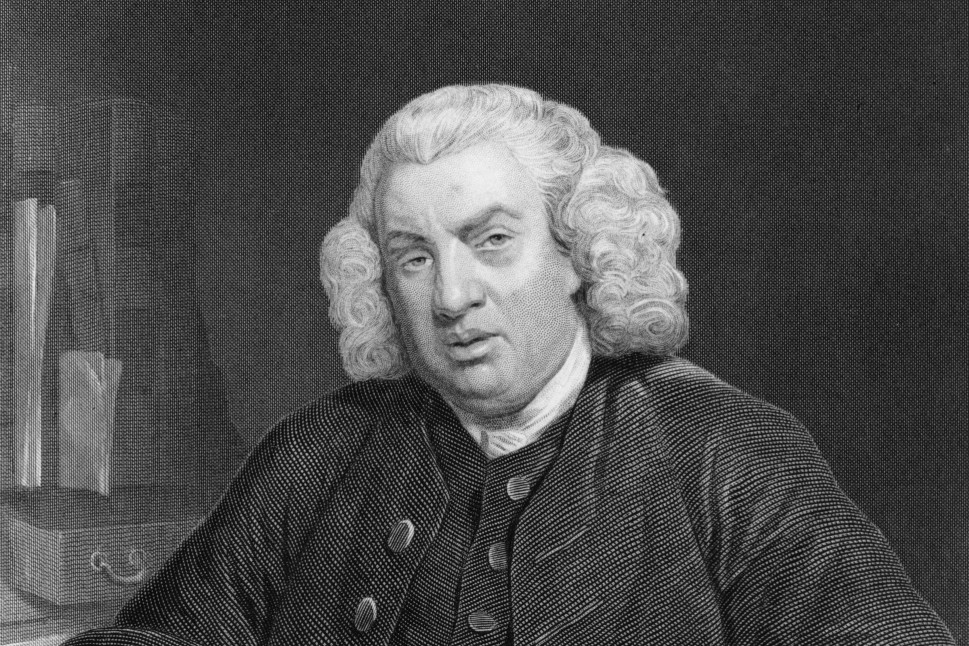(Note the placement of the question mark in the title.)
I am working on my triennual speech for the honors college medal ceremony and trying to be a little different while still presenting my basic theme that “honor” is fundamentally about knowing what is right and having the strength and courage to do it. The notion of honor is of course very broad and can be defined in many ways and I thought I would take a peek at what Wikipedia might say. There was a nice quote that I thought I could use, attribute to Dr. Samuel Johnson.
Dr Samuel Johnson, in his A Dictionary of the English Language (1755), defined honour as having several senses, the first of which was “nobility of soul, magnanimity, and a scorn of meanness.”

Now I am a scholar, and a scholar of texts at that, so I thought I should try and verify the quote. Lucky for me Archive.org has not one but two copies of this dictionary scanned. The image at right is from Princeton Theological Seminary and dates to 1756 (note the date!).
What is interesting is that I could not confirm the wiki quote! The two versions available online were published in 1756 and 1785, only have it as the fifth (not first) definition and the quote is “nobleness of mind; scorn of meanness, magnanimity.” And that is according to the 1785 edition. The 1756 version is truncated: “Nobleness of mind; magnanimity.”
I am not sure what to make of this. To my ear “nobleness of mind” is quite a different notion than “nobility of soul.” I am not sure what that difference is just yet, but it strikes me that they are not the same. It is, of course, not only possible but likely that there was a 1755 edition that has this alternative entry and for some reason Johnson changed it in subsequent editions. (Perhaps the citations and examples provided are only in the later editions and he adjusted his definition to fit the example?) In Johnson’s time the concepts of “soul” and “mind” were being widely debated, were they not?
But that is not why I am writing to you now. I really do want to know what images are conjured up in your mind when you think of “honor.” What examples would you offer of honorable people or events? Please give me your thoughts in the comments!





4 thoughts on “How would you define “honor”?”
I like the quotation marks and the lack of a superfluous “of” but you have omitted a “u”.:-)
I always associate honour with honesty and integrity. An honourable event might be the recent visit by the King of Tonga to meet the sick child cancer patient in her own home. She was honoured by his honourableness in an honourable event. Nobility of the mind sounds different from that of the soul. Nobility of the mind seems more honourable because it appears as if it is the product of a conscious decision whereas the soul is something we are born with and therefore is nobleness is something inherited (in my opinion, for what that’s worth).
In my approach, honor contains three components. At the heart, someone was in need, in a fundamental and maybe dire way. Applied to that, someone else went beyond ‘good enough’ and put themselves out of balance to approach that need in a way that was exceptional, either visibly or quietly, such that the need was tended. Finally, a component of celebration, or mildly of some gain of audience, is created to bring the appreciation of that set of events to light, so that it becomes almost a parable, or a road map for others that might find themselves in a similar scenario. The honorary event celebrates the selfless nature of the aid to the need. The need and the deed offset each other in stark contrast, and the honor is the extolation of that bit of human beauty. The example of Lin Hao, the hall monitor is perfect here, but there are many others.
Thank you both for your replies. I am looking forward to more replies. This has been very interesting to hear what others think on this topic.
Most common honour is related to honesty and integrity but remember that there can also be “honour among thieves”. Another form of honour is the commitment to acting in a way that exemplifies the values and norms of the society the individual is a part of. Honourable thieves do not steal from other thieves nor bear witness against (be a rat) against other thieves.